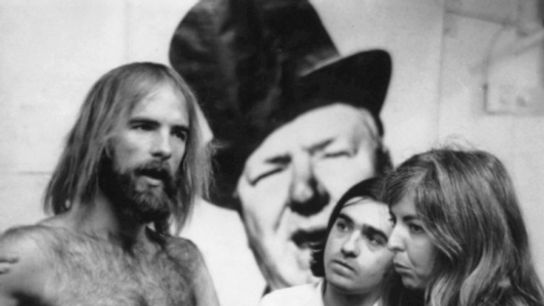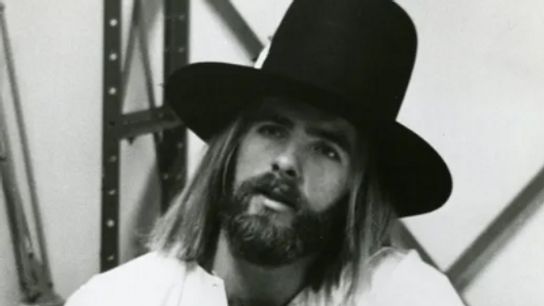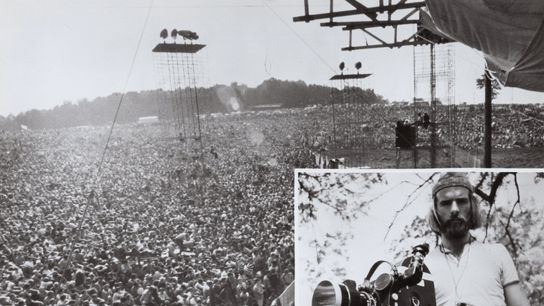GETTING TO WOODSTOCK
In the summer of 1969, the Woodstock Music Festival was on the verge of collapse before it even began, plagued by uncertainty and mounting opposition from local authorities and residents. The idea of hosting a massive rock concert in the quiet countryside of upstate New York sparked anxiety among the conservative farming communities, who viewed the festival as a potential breeding ground for radicalism. As early as 1911, Woodstock had garnered a reputation as a hotbed of left-wing activism, a sentiment that persisted into the late 1960s, making locals wary of the upcoming event.
Governor Nelson Rockefeller, then the Republican governor of New York, became involved as the state became aware of the festival's organizers seeking permits beyond local jurisdictions. The state government's interest was piqued by early reports and articles about the planning of the festival, which underscored the logistical challenges and the need for state-level approval. This led to heightened scrutiny and fears that the festival could be shut down by state authorities at any moment.
The turning point came when Max Yasgur, a prominent local farmer and businessman, stepped in to support the festival. Initially, Yasgur was reluctant to host the event on his land, largely due to his disdain for the countercultural appearance and ideals of the festival organizers. However, after being persuaded by Michael Lang, one of Woodstock's key organizers, Yasgur came to view the festival as a matter of free speech. His decision to allow Woodstock to proceed was instrumental, as his influence in Sullivan County and the wider state helped secure the necessary clearances and permits. Without Yasgur's intervention, the festival that became a symbol of the 1960s counterculture movement might never have taken place.

Michael Wadleigh, Martin Scorsese, Thelma Schoonmaker
Reflecting on Yasgur's pivotal role, Michael Wadleigh, director of the iconic Woodstock film, noted, "Yasgur didn't want to do it initially. He really said, 'I'm gonna do this because it's a free speech issue.' Even if he didn't like the music or the way we looked, he believed in our right to do it. Without him, there would have been no Woodstock." In the days leading up to the festival, Yasgur played a hands-on role in the event's logistics, from helping with the setup to acquiring additional land for parking and access. Despite his initial reservations, Yasgur's commitment to the principle of free expression ultimately led him to support an event that would define a generation, standing as a testament to the enduring American values of freedom and tolerance.
FILMING
Wadleigh recalls a quintessentially '60s experience that underscores the spirit of the festival. Like many involved in the counterculture, Wadleigh owned a VW van, the iconic vehicle often associated with the era. "If I say Woodstock, almost always, people will sort of relate it to the woods, to the vans, to the old-fashioned, you know, sort of squarish rectangular VW vans," Wadleigh reminisces. For him, the van was not just a mode of transportation but a crucial part of his filmmaking process, often used to haul equipment to various shoots. In preparation for long drives, he would load up the van the night before, leaving little space for anything else.
As the cameras rolled at the 1969 Woodstock Music Festival, director Michael Wadleigh and his crew quickly realized they were facing significant challenges. With Richie Havens on stage, followed by a series of acts, the team found themselves recording miles of film under less-than-ideal conditions. "We thought we were really, really ready for it," Wadleigh recalls, but the reality was quite different. The crew had carefully set up their positions and equipped themselves with headsets to communicate during the performances, only to discover that the deafening sound of the heavy rock bands made it impossible to hear anything. "You just can't hear a thing," Wadleigh explains, describing the frustration of being unable to direct the cameramen as planned.

Despite these communication issues, the crew's expertise shone through when they reviewed the footage. "The good news was when we got back and saw the footage, we had great cameramen, and they did their thing," Wadleigh says. The team adapted by giving basic instructions about which band members to focus on and whether to shoot wide or tight. Wadleigh, who operated the center camera, coordinated with the other cameramen to ensure they captured every angle. "We sort of had that down, and that worked," he notes, emphasizing the importance of teamwork in the chaotic environment.
Logistics posed another major challenge. With walkie-talkies as their only means of communication, the crew found themselves struggling to relay information across the massive festival grounds. "The walkie-talkies that were set up in those days... were not even so good," Wadleigh says. This lack of reliable communication meant the crew had to rely heavily on the skill of their cameramen, particularly for capturing moments away from the stage. Wadleigh tasked legendary documentary cameraman David Myers and others with roaming the grounds to capture various scenes. "The idea was, don't go there and stay there, but go down to the lake, get a sequence, move on, go to the forest, go to town," he explains, a strategy that resulted in the diverse and dynamic footage seen in the final film.
Despite the many hurdles, Wadleigh realized early on that they were capturing something special. "I think we knew very, very early on, maybe at the latest by the time Havens finished his set," he says. The crew had already gathered a wealth of engaging, emotionally resonant footage from the festival-goers, and the musical performances were shaping up to be equally compelling. "Now we knew we had the music," Wadleigh says. The challenge then became pushing the film to its full potential. "We got a winner here. We better live up to it."
Wadleigh and his team were committed to making the Woodstock film not just a documentary, but an immersive experience for viewers. They envisioned using 70mm film and surround sound to bring the festival's energy to life in theaters. "We knew we had a winner. Now, will it be really, really a winner?" Wadleigh reflects. Their dedication paid off, as the Woodstock film not only captured the spirit of the festival but also became a groundbreaking cinematic achievement that continues to resonate with audiences today.

THE FUTURE OF OUR PLANET
As Wadleigh reflects on the legacy of Woodstock and the future of humanity, his thoughts turn to the pressing environmental and societal challenges we face. "We have a much greater potential to wipe ourselves out than to grow forward constructively," Wadleigh warns, expressing deep concern over the depletion of Earth's resources. He highlights the lack of sustainable practices and the increasing consumer demand for products without consideration for their origins. This, he fears, could lead to a catastrophic spiral if society doesn't take immediate action to change course.
Wadleigh also laments the generational shift in attitudes toward responsibility, noting that many parents today expect their children to fend for themselves in a world that is far less forgiving than it was for previous generations. "It's harder for a kid to make his own way in the world today than in our generation," he notes, pointing out the increased population and dwindling resources that have made self-sufficiency more challenging than ever before.
Drawing a stark contrast between science fiction and reality, Wadleigh dismisses the idea of a future where humanity simply moves to other planets or creates replicants to continue our legacy. Instead, he emphasizes the slow pace of innovation in sustainable energy, despite technologies like solar power and hydrogen fuel cells being developed over a century ago. "We're only biology, Rob, we're not yet cyborgs at all," he states, underscoring the vulnerability of humanity in the face of environmental and technological challenges.
Wadleigh calls on leaders and educated individuals to take responsibility for the future. He urges them to listen to the science, rather than being distracted by the fantasies of science fiction. "We're not really made happy by the conduct that we're presently engaged in,"


